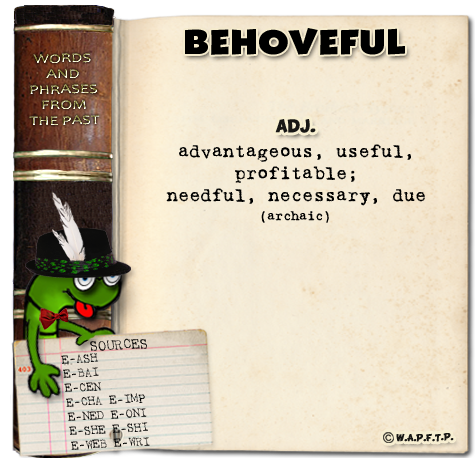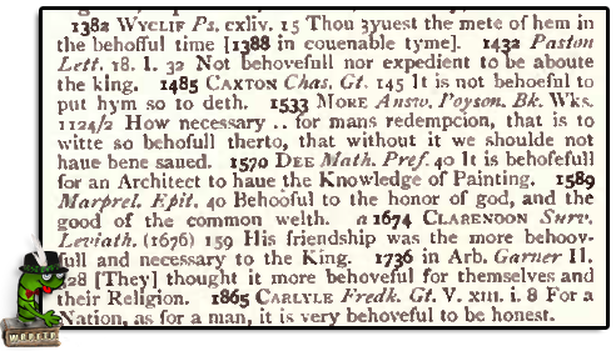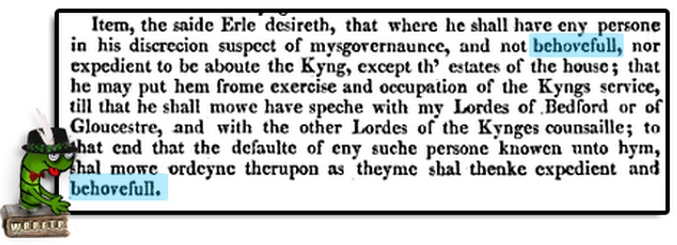|
also BEHOEFUL, BEHOFEFUL, BEHOFFUL, BEHOFUL, BEHOOFEFUL, BEHOOFFUL, BEHOOUEFUL, BEHOOVEFUL, BEHOOVFUL, BEHOUEFUL, BEHOVFUL, BEHOWEFUL, BEHUFFUL, BYHOOFFUL, CLICK HERE FOR KEY TO SOURCES from E-NED: from behoof n. [Old English *bihóf ‘utility,’ occurring in the deriv. bihóf-liacuc useful, necessary; = Old Frisian bihof, Dutch behoef, Middle High German bihuof, modern German behuf, of same meaning; from *bihóf, pa. tense of Orig. Teut. *bihafjan,Middle High German beheben ‘to take, hold, receive,’ from bi-, be- + hafjan, Old English hębban, pa. tense hóf, ‘to heave, raise,’ orig. ‘to take up, take,’ cogn. w. Latin cap(i)ĕre. The original sense seems to have been either, ‘taking in, reception, acquisition,’ whence ‘gain, advantage,’ or ‘taking away, taking to oneself, taking the use of,’ whence ‘use.) + -ful. (Extremely common from 1400 to 1700) 1382 - John Wyclif; see below from E-NED From: The Antiquarian Repertory:
A Miscellaneous Assemblage of Topography, History, Biography, Customs and Manners. A New Edition, Volume II. 1808 Articles Exhibited by the Erle of Warwyk, Preceptor to Kyng Henry VI, to the Dukes of Bedford and Gloucester, (the Kyngs Uncles) and other Lordes of the Kings Counsell P. 229
0 Comments
Leave a Reply. |
Archives
September 2021
|





